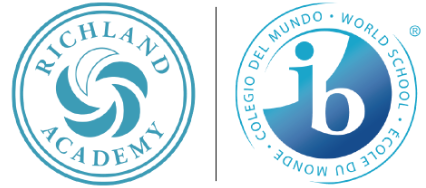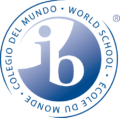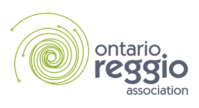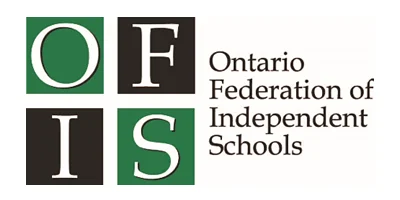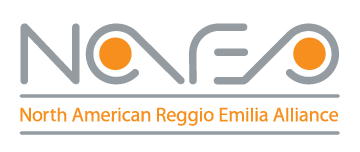We’re pleased to share this post from Richland Academy’s Head of School, Mrs. Marlina Oliveira, who regularly contributes her insights, research, and experiences with Inquiring Minds.
 I am always amazed at how quickly the summer goes by; the heat waves (although very few, if any this summer) are substituted with cooler temperatures, the long and bright days begin to diminish after Summer Solstice, the Canadian National Exhibition opens it gates, and Back to School specials are everywhere! Despite our desire for the unstructured time that summer brings us, there is always an excitement and energy that prevails as we prepare for the start of a new school year. Back to School is about returning to a place of familiarity, comfort, community, and a place we can call a “home away from home.”
I am always amazed at how quickly the summer goes by; the heat waves (although very few, if any this summer) are substituted with cooler temperatures, the long and bright days begin to diminish after Summer Solstice, the Canadian National Exhibition opens it gates, and Back to School specials are everywhere! Despite our desire for the unstructured time that summer brings us, there is always an excitement and energy that prevails as we prepare for the start of a new school year. Back to School is about returning to a place of familiarity, comfort, community, and a place we can call a “home away from home.”
Each new school year brings the promise of hope, newness and opportunity for change. As the cartoon above depicts, we are well into the 21st century, also called the Conceptual/Creative Age. Learning in this era is about the way we receive and transform information and is focussed on developing our intellectual thought processes, increasing our levels of communication and collaboration, humanity and creative and inventive thinking.
Jim Cash described “learning as creation, not consumption. Knowledge is not something a learner absorbs, but something a learner creates.” In his book, the World is Flat, Thomas Friedman observes that the first and most important ability you can develop to flourish in the 21st century is the ability to learn how to learn and the focus is not on adding more to the curriculum, but transforming it, it is about moving children away from teaching to learning.” The need to change and transform our schools is unavoidable; we cannot stop or alter it. It is being driven by global, economic, technological and humanistic factors and the best response to this change, as it is to any change, is to embrace it and to work with it.
The Institute for the Future (IFTF) is an independent, non-profit strategic research group with more than 40 years of forecasting experience. The core of their work is to find emerging trends that will transform the global world and marketplace. Their work and research provides its members with insights into business strategy, design process, innovation and social dilemmas. Based on their 2011 report entitled, “Future Work Skills, 2020”, they have identified six drivers of change that will “reshape the landscape of work and key work skills needed in the next 10 years.” The report does not focus on the jobs of the future, rather on the skill set, abilities and mindset required to meet future jobs with success.
Key skills identified for the future workplace are focussed on;
- being transferable from one geographical environment to another;
- the value of the emotional and social IQ of people in different settings;
- building trusting relationships will be more important than ever before;
- thinking about design and systems thinking and transferring this thinking from one discipline to another;
- solution oriented that are creative and responsive to its environments and conditions;
- placing value on collaboration and team work, and not working in isolation
To embrace the changes of this era and to prepare our children with the skill set and mindset they will need to succeed, learning spaces and a learning pedagogy and approach that will give them opportunities to work collaboratively, think creatively and critically about ideas, concepts across a range of subjects, and to be able to excel in a global world rich in technology, are essential.
Let’s take a peek into a learning environment that is focussed on the child and views the child as competent and capable. Classrooms that are not organized in rows and rows of desks, rather tables and open learning spaces, that invite and lend themselves to individual work and collaboration with one another; students, teachers and school staff.
To begin a learning journey, creative ideas , thoughts and theories are shared , followed not by a teacher dispensing all the knowledge, instead the chance for the child to explore, experiment and discover the answers, to engage in research, to synthesize information, interpret results and to create and invent a new idea or concept. This is the difference between “learning as creation, not consumption.” Along this thoughtful, intentional learning journey which connects to curricular “big ideas’ and expectations, the teacher finds ways to offer authentic learning experiences to enrich the inquiry. How? Through other people and experts in our local and global communities, technology and the myriad of materials and resources available in and outside the classroom. Thinking and learning in these classrooms is captured and made visible through the children’s work, images, and interpretative narratives of the experience. The experiential classroom is alive, organic and humming with the children’s voices and movement about the room, as they steadily and eagerly go about their work. Excitement, enthusiasm, joy, engaging, thought-provoking, and alive are some of the words which come to mind when describing a 21st century classroom.
How will this year’s learning spaces and teaching approach be preparing your children for this century?

